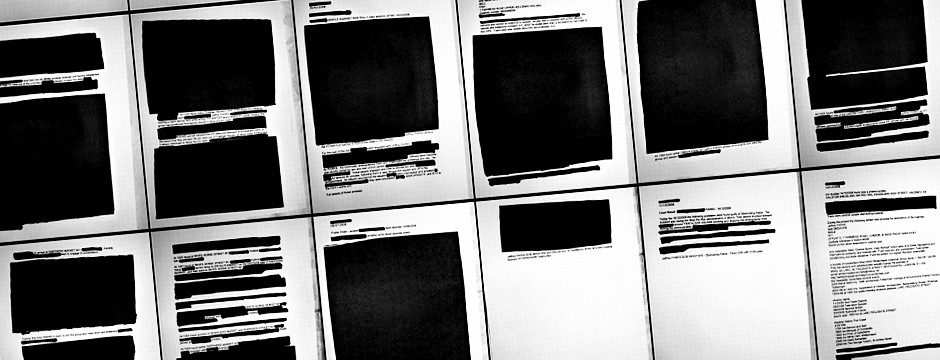Topics of Special Interest
- For decades, animal rights activists have faced governmental repression at the hands of the FBI and other law enforcement agencies. The Law Office of Jeffrey Light litigates numerous FOIA cases against agencies which have shown a pattern of illegal and unconstitutional activities directed towards the animal rights movement.
Representative cases include:
- Shapiro v. Department of Justice (request for records pertaining to dozens of individual activists and organizations)
- Labow v. Department of Justice(request for records about two animal rights activists)
- Government surveillance of its citizens is a controversial topic, particularly when it involves monitoring political activists. In order to provide a check on the government's power to spy on its citizens, the public needs to be well-informed about the issue. Unfortunately, records about government surveillance often remain hidden from public view long after the rationale for their secrecy has evaporated. The Law Office of Jeffrey L. Light represents historians, civil libertarians, and journalists in their efforts to shine a light on government surveillance.
Representative cases include:
- Guardian v. Department of Justice (spying on environmental activists)
- In re application of Jason Leopold (Pen Register/Trap and Trace and other electronic surveillance applications and orders)
- Shapiro v. Department of Justice (spying on animal rights activists)
- Many historical records that are of significant public interest remain hidden away, gathering dust on government shelves. For example, long after COINTELPRO formally ended, much remains unknown about this vast domestic surveillance program operated by the FBI. Litigating FOIA requests for older records is often complicated because the records may never have been digitized, are stored in obsolete records systems, or were created by agencies which no longer exist. The Law Office of Jeffrey L. Light has successfully obtained historically significant records for authors, filmmakers, historians, journalists, and others. These documents, though related to governmental activity decades ago, remain relevant today, and often provide important context to contemporary debates about surveillance, national security, and other controversial subjects.
Representative cases include:
- Martinez v. Department of Justice (surveillance of Chicano civil rights movement)
- Seavey v. Department of Justice (COINTELPRO St. Louis)
Weinberger v. Department of Defense(history of DARPA)
- The records that are typically hardest to obtain through FOIA are those in which the government asserts a connection to national security. However, these records frequently contain the information most needed by the public to evaluate governmental policy and hold officials accountable for their actions. Litigation in this area is all too often a necessity, and success in obtaining records requires tenacity, specialized experience, and sound judgment. The Law Office of Jeffrey L. Light has achieved remarkable results for clients in cases involving national security issues, leading to highly-publicized revelations about government actions in the war on terrorism.
Representative cases include:
- Leopold v. Department of Defense (records relating to Guantanamo detainees)
- Buzzfeed v. Department of Defense (records relating to detainees at Bagram Air Force Base in Afghanistan)
- Leopold v. Department of Justice (government's legal justification for CIA conducting drone strikes in Yemen)
- FOIA requests often entail massive delays, excessive redactions, unduly burdensome fees, and inadequate search efforts by agencies. While FOIA was designed to bring transparency to government operations, the agencies' FOIA operations themselves are often shrouded in secrecy. In order to bring accountability and transparency to the FOIA process, the Law Office of Jeffrey L. Light represents transparency advocates in "FOIA about FOIA" cases.
Representative cases include:
- Shapiro v. Department of Justice (FBI search slips)
- Colgan v. Department of Justice (FBI FOIA processing policies)

